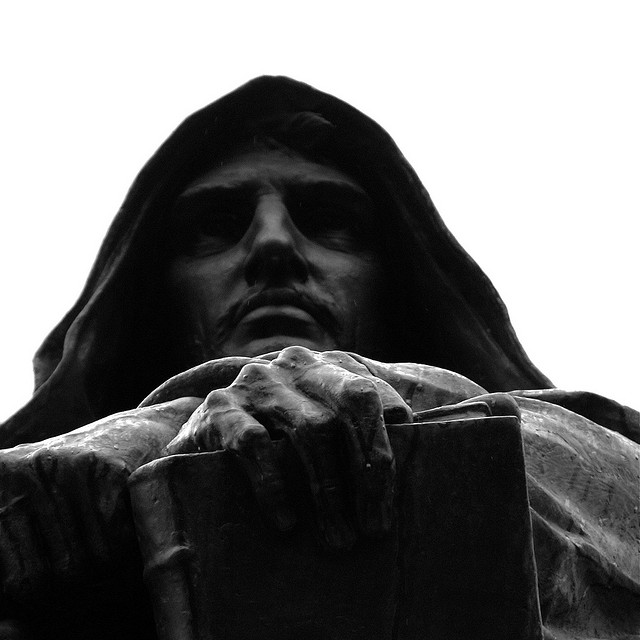Music at Mars Hill is a weekly column by Luke Larsen that seeks to find God amidst the newest trends in both mainstream music and independent music.
Spotify has been in business here in the United States since summer 2011. With nine months of legal music streaming under our belts, what do we have to say about this radical new way of listening to music? Are Spotify and other music streaming services just another passing trend in music listening? Is it a democratization of music or is it a commercialization of it? As someone who has been wary to jump on the cloud music listening experience, I hope to offer some big-picture thoughts from a historical point of view.
Let’s jump back 100 years.
The year is 1912. Edison’s phonograph cylinders are the first commercial recording mediums and very much in demand. Originally invented in 1877, these wax cylinders are sold as “records,” or “canned music” — the first physical manifestation of reproduced music that could be bought and sold. Today, we talk a lot about how the CD replaced the cassette and how the mp3 replaced the CD — but have you ever thought about what the phonograph replaced? About what recorded music replaced?
Before the invention of phonograph and the place it took up in the home, player pianos, or “self-playing pianos,” had been the center of the living room. The cheap manufacturing of both player pianos and real pianos had democratized music like never before to the point where almost every family could afford to have music be a part of their lives. Over a hundred years later, the digital revolution has been has been leading us seemingly back to where we came from: a non-physical, democratized relationship with music. Owning music is increasingly becoming a non-issue.
Isn’t it odd then that we cling so desperately to the music that we own? Some people still haven’t given up their record collections. Others haven’t give up their CD or cassette tape collections. Personally, I’m still holding on to my iTunes Music Library. I often find myself digging through it, reminiscing, and organizing it like trophies that I’ve collected on my living room wall.
Maybe twelve years ago, Sean Parker’s Napster first launched. It was a dramatic democratization of music that the music industry didn’t take kindly to. Now Sean Parker (or Justin Timberlake, as most of us know him as) is an investor and strategic advisor at Spotify, which is most certainly the final stop on the train of the digital revolution. The industry has finally accepted our terms and legalized what people have always wanted. Furthermore, digital technology has given us the past twelve years of transition to let go of our attachment to physical representations of music — but are we ready to give it up?
Maybe musicians weren’t ever really that interested in getting you or a record label or anyone else to “own” their music. Sure they wanted to get paid — but they wanted to offer people something to hear, something to experience, and something to engage with . . . but perhaps not necessarily something to own. It’s interesting to observe that many of us who are hesitant about jumping on board the Spotify train are also those who consider themselves to be the biggest music fans.
Maybe letting go at this point is the healthy thing to do. It seems like the right thing to do. Just give me some more time — I know I’ll come around eventually.











